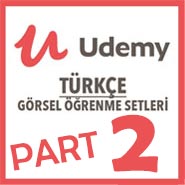TheGreatCoursesPlus - The Art of Public Speaking
Learn how to prepare, craft, and deliver a great speech with this unique course that explores the principles of public speaking by examining the greatest speeches from history.
1: Overcome Obstacles-Demosthenes of Athens
- Here, Professor Hale outlines the goals of the course. Then, he introduces you to Demosthenes-the ancient Greek orator whose life and career illustrates how practice, hard work, memorization, the acceptance of early failures, and other skills are essential to overcoming obstacles from stage fright to speech impediments.
2: Practice Your Delivery-Patrick Henry
- Key to effective speaking is using your voice and body to reinforce your meaning. Using examples from Patrick Henry, Oliver Cromwell, Winston Churchill, and others, learn how the power of a speech lies not so much in words as in vocal and physical elements like tone, pitch, facial expression, and posture.
3: Be Yourself-Elizabeth I to Her Army
- In order to make the deepest possible connection with your audience, it's essential to talk about yourself. This lecture provides you with advice on opening up to people about yourself-your experiences, your emotions, even your weaknesses-with some lessons taken from speeches by Elizabeth I and Sojourner Truth.
4: Find Your Humorous Voice-Will Rogers
- Learn how to use humorous techniques such as hyperbole, incongruity, and surprise-even when your speech is of the utmost seriousness. The secret of effective humor, as speeches by Will Rogers and others show, is to ensure that each laugh makes a point and focuses your audience's attention on the topic.
5: Make It a Story-Marie Curie on Discovery
- Turn now to a series of lectures on composing effective speeches. Here, investigate the benefits of organizing information into a story to give your details weight and vividness. One powerful example of this concept at work: Marie Curie using storytelling to explain the complexities of radium-and to make them memorable.
6: Use the Power of Three-Paul to His People
- What is the power of three? And why is it so important to writing a great speech? Find out as Professor Hale unpacks the 13th chapter from Paul's first letter to the Corinthians to demonstrate why a speech-and the examples and anecdotes it uses-should be planned in threes.
7: Build a Logical Case-Susan B. Anthony
- Logic should always guide the sequence of your thoughts, whether you're giving a sermon, a corporate report, or a birthday toast. Discover how to avoid digressions, offensive statements, contrarian views, and other pitfalls that may disrupt the logic of your speech, with examples from Susan B. Anthony, John Stuart Mill, and Chief Joseph.
8: Paint Pictures in Words-Tecumseh on Unity
- Narrow your focus to the individual words and phrases you use in your speech-each of which can make your topic unforgettable. With the help of Tecumseh, Homer, Aesop, and others, examine ways to create and use evocative images, avoid mixed metaphors and hyperbole, and more.
9: Focus on Your Audience-Gandhi on Trial
- Now that you've learned how to overcome obstacles and prepare, it's time to learn the essential elements of actually giving a speech. Here, Professor Hale uses famous historical figures, including Gandhi and President Kennedy, as models for how to deliver your speech to-and connect with-specific audiences.
10: Share a Vision-Martin Luther King's Dream
- Martin Luther King Jr.'s "I Have a Dream" speech is one of the most iconic speeches in modern history. More important: It's the perfect example of a speech with the power to inspire. In this lecture, discover ways to articulate and share your personal vision with an audience.
11: Change Minds and Hearts-Mark Antony
- Sometimes, you may find yourself speaking before an audience who needs to be persuaded about your point of view. Discover invaluable tips for swaying emotions and opinions by appealing to sentiments, repeating facts, and using props-just like Mark Antony does in his unforgettable speech from William Shakespeare's Julius Caesar.
12: Call for Positive Action-Lincoln at Gettysburg
- Finish the course with a look at what Professor Hale considers the greatest speech ever written: Abraham Lincoln's Gettysburg Address. Two powerful lessons you can take away from Lincoln's words: Include a clear call to action near the conclusion of your speech, and always craft a strong ending.

The.Art.of.Public.Speaking.part1.GC.rar
The.Art.of.Public.Speaking.part2.GC.rar

































